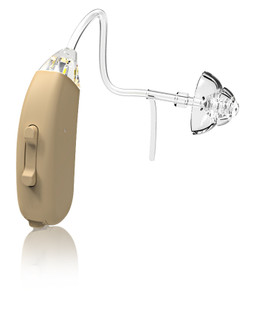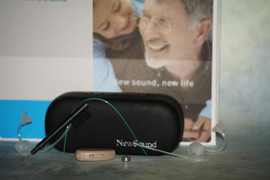Understanding the Connection Between Hearing Loss and Cognitive Decline
Posted by DR Paul on Mar 13, 2025
In today’s fast-paced world, staying connected is more important than ever. Whether it’s engaging in vibrant conversations with loved ones, participating in group activities, or immersing yourself in your favorite pastime, our ability to hear plays a crucial role in maintaining these connections. However, as we age, hearing loss becomes a common challenge that can quietly slip into our lives. More than just an inconvenience, research increasingly suggests that there is a significant connection between hearing loss and cognitive decline. As those exploring solutions like hearing aids for themselves or their loved ones, understanding this link can empower you to make informed decisions about your hearing health.
Hearing Loss has a profound impact on overall health:
Hearing loss affects millions of people worldwide and is often considered an inevitable part of aging. But what many don't realize is its profound impact on overall health, particularly cognitive functions. Studies have shown that individuals with untreated hearing loss are at a higher risk of developing dementia compared to those without hearing impairment. This correlation has sparked interest among researchers seeking to understand how our auditory system influences brain health.
Your brain processes sound and maintains cognitive function:
The mechanics of this relationship are grounded in how the brain processes sound and maintains cognitive function. When hearing diminishes, the brain must work harder to interpret sounds and fill in missing gaps during conversations. This extra effort reallocates cognitive resources from other critical areas such as memory and thinking skills. Over time, this increased cognitive load can contribute to faster rates of brain atrophy and reduced mental acuity.
Social isolation and hearing loss:
Social isolation is another key factor linking hearing loss to cognitive decline. Struggling to hear can make social interactions daunting or frustrating, leading individuals to withdraw from activities they once enjoyed. This reduction in social engagement deprives the brain of stimulation required for keeping it sharp and active. Isolation compounds feelings of loneliness and depression – both known accelerants of cognitive deterioration.
Addressing hearing loss:
Thankfully, addressing hearing loss through interventions like modern hearing aids offers hope in mitigating these effects. Hearing aids have evolved remarkably over the years; today’s devices are compact powerhouses equipped with sophisticated technology designed not only to amplify sound but also enhance speech clarity while reducing background noise. By improving communication abilities, users often experience renewed confidence socially which can be profoundly beneficial for mental well-being.
Investing in your auditory health by considering options such as regular screenings or consultations with audiologists could potentially safeguard against future cognitive challenges associated with untreated hearing impairments. Early intervention ensures that any degree of hearing loss is managed effectively before it impacts quality of life significantly or contributes further towards mental decline.
Understanding the intricate connection between hearing loss and cognitive decline opens up pathways toward proactive measures that support both auditory and overall mental wellness. With advancements in technology providing effective solutions through devices like modern-day hearing aids coupled with timely action plans involving regular check-ups — it's reassuring to know there are ways we can protect ourselves against potential risks associated with untreated auditory issues! Remember—you’re not alone on this journey; reach out when needed because taking control today leads toward thriving tomorrow!










